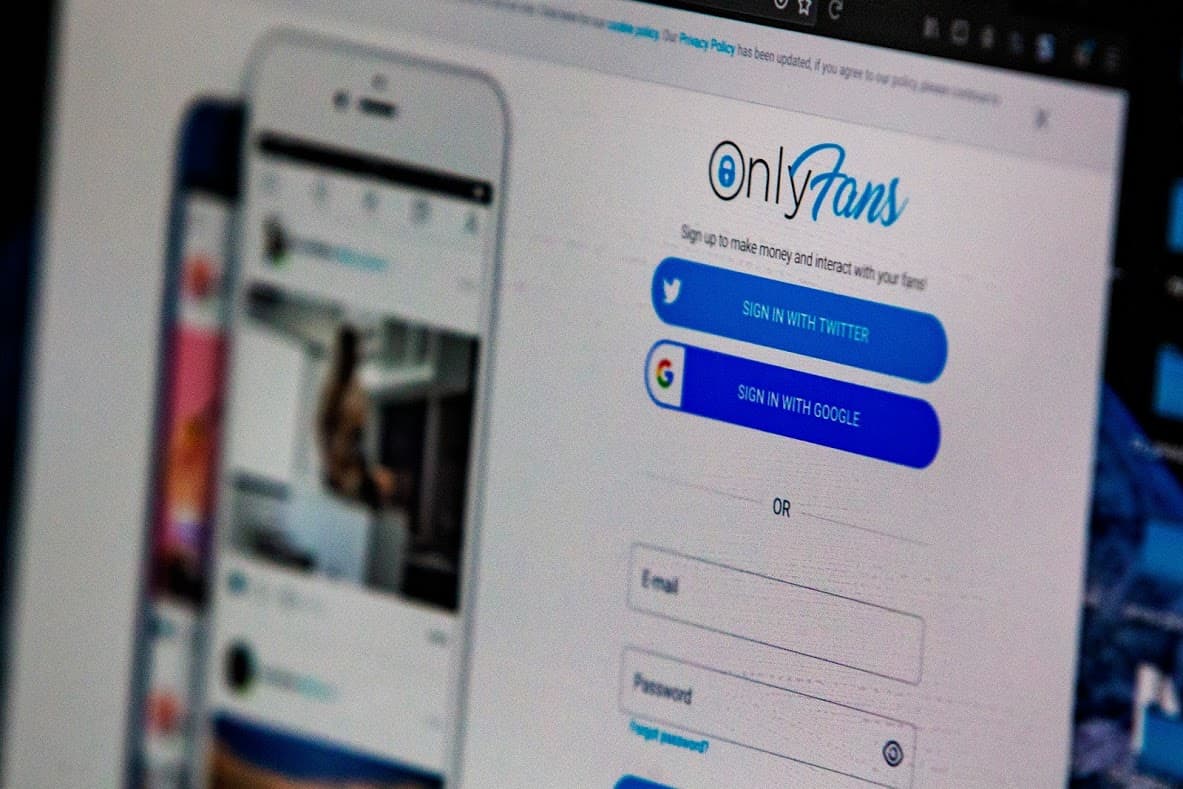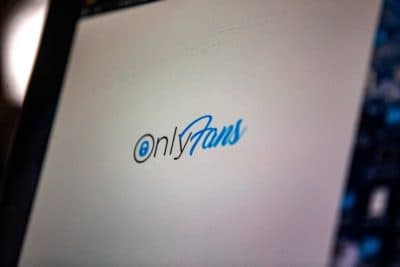Advertisement
Emerson College Journalists Document Use Of Online Sex Work Platforms By Fellow Students

Editor's Note: This story includes mature content, along with references to sex abuse and trauma. The Berkeley Beacon allowed students interviewed for its story to remain anonymous and to use aliases in order to protect their privacy and safety, due to the potential stigma and dangers that can be associated with sex work.
The growth of social media sites has long provided people with new and creative ways to make money. Those include getting involved in the commercial sex industry, virtually.
Emerson College's student newspaper, The Berkeley Beacon, recently reported on students making hundreds, or even thousands, of dollars a month selling nude and semi-nude photos to clients online. The student journalists say the most popular platform among the students they interviewed is the subscription site OnlyFans. Students also use SnapChat and Reddit to connect with people who buy photos of them.
WBUR's Jack Lepiarz spoke with Berkeley Beacon News Editor Dana Gerber and Deputy News Editor Ann Matica about what they learned through their reporting.
Interview Highlights:
Ann Matica: OnlyFans is an online [platform on which] creators can post content, whether it's nude photos, semi-nude photos. It's really up to the creator. And then OnlyFans has fans that subscribe to various creators. ... And in the past year, since the pandemic, this platform has grown in a huge way. And it's become one of the main ways in which a lot of students are doing sex work these days.
I think from the students that we talked to, it's a way to express themselves creatively. ... One of our sources who goes by the name WeekndWrrior, she isn't really able to, because of health issues, work a 9 to 5 job every day. And so being able to, you know, have this job where she can make her own hours — [and it's] very flexible — is really convenient for her. And some people just really like it. And especially within the pandemic, it's not always the safest to have, like, industry jobs in the food industry and stuff. So right now, it just really makes the most sense for a lot of these students.
Advertisement
On some students turning the posting of nude photos into a profitable business:
Dana Gerber: [One source] said that since high school she's made $120,000. So it has proved really lucrative. I do want to say that only the top percentage of creators really make a sustainable income. [We] mentioned WeekndWrrior, who uses the money to help put herself through college. She said she didn't have a lot of financial support from her family. ... So these kids aren't becoming millionaires, but it seems that there are definitely tactics to use to increase their income. It's not just sending out photos randomly. They make schedules. They determine the times that people are most willing to purchase photos.
On some students escalating the interaction with their clients:
Dana Gerber: One of the sources in the story spoke about [an experience in which] she once video-chatted with a client, but that wasn't really something she was comfortable with. ... So she had mostly stuck to selling pictures and videos of herself but didn't do that face-to-face with clients. One of the women we spoke with would have a pretty one-on-one connection with her clients ... through SnapChat. So it was private messages. She told us about a time she went to a local restaurant near Emerson, and she got eight pitchers of margaritas with her friends. And then she texted one of her clients asking him to pay for it, and he did. So it does seem that some of them established more personal connections with their clients and that that, of course, I'm sure helped them make more money.
On physical safety risks:
Dana Gerber: The people we spoke with were very cognizant that this has inherent risks and dangers. They've all gone to extreme lengths to make sure that their identities as sex workers were completely disentangled from their [real/actual] online identities.

On students who are survivors of sexual trauma being involved in the sex industry:
Ann Matica: [One of the students we interviewed] is a survivor of sexual trauma. And at the point before she started doing sex work, it was something that was really consuming her. Her mental health was at an all-time low, and she felt like her body was no longer her own. And then when she began doing sex work and taking nude photos of herself, and kind of getting that autonomy back over her own body and her own self image, she found it really empowering. And while that is not always the case for everybody, [she says] it has been a very positive experience on her journey to heal from that very extreme trauma that she experienced.
Dana Gerber: One of our sources described being groomed as a child and being hypersexualized by this family member who was grooming her. And of course, while that was not a positive experience, she described going into sex work as a positive experience because she had sort of embraced that hypersexuality by that point in her life. ... She did describe having a mental breakdown while she was doing sex work, [but] it wasn't directly tied to that. I believe, from what I got from speaking with her, it was sort of compounded with a lot of other duties and responsibilities. ... And she also described body image issues and stuff, which sort of, again, ties into the sex work. But, by and large, she described sex work as a really positive and empowering and fulfilling experience.
WBUR reached out to Britain-based OnlyFans multiple times requesting comment but did not receive a response to our questions.
According to the company's website, it has more than one million content creators and more than 100 million users/subscribers, up from 10 million users in July of 2019.
For more on the risks involved in the commercial sex industry, Jack Lepiarz also spoke with Lisa Goldblatt Grace. She's a clinical social worker and executive director of Boston-based My Life My Choice, which works to protect youth from exploitation in the illegal sex trade. Goldblatt Grace says the organization also continues working with young people as they transition to adulthood, some of whom end up involved in the sex industry.
We asked her about her knowledge of the site OnlyFans.
Lisa Goldblatt Grace: When I think about a site like OnlyFans, what I hear from young people that we care for is that it's a place that exploiters will push for them to post pictures. It's often beginning with something that's exclusively virtual, but moving into things that are face-to-face. And as you can imagine, in person is much, much more dangerous. So in terms of their physical safety, there's a whole continuum there — and I would argue in terms of their emotional safety. And any time that we say it's OK to buy sexual access to another human being, any time we commodify a human being, we've caused harm.
On any concerns surrounding people with a history of trauma or mental illness being involved in the commercial sex industry:
What we know about the commercial sex industry in general is that somewhere between 70% and 90% of women in the commercial sex industry have a history of sexual abuse. I mean, in reading this [Berkeley Beacon] article, it sounded like the young people felt like they had a choice, and they had options, and this is the one that they chose. ... I have nothing to say about their particular lives. But that is not the case for the vast majority of young people and young adults that we see every day. Frankly, it's about the absence of choice. If you've been taught that you're valuable only for sex, if you're in a coercive or violent relationship, if you're needing money to pay bills or to otherwise navigate the world in the context of all of this, that's about not having choice, right? That's not about having some good options in front of you and choosing the one that feels the best or the most empowering or makes the most sense.
On whether there are positive aspects in terms of having autonomy over your own body:
I understand that. And I've heard that argument often. And we each have the right to have full control over what we do with our body. So this is not me sitting here in judgment. It is me sitting here saying that there is harm in this industry, whether it's felt now, 10 years from now, 20 years from now. And it's very rare to be able to navigate this ... egregiously abusive and misogynistic industry without having it exacerbate your trauma or give you trauma if you've never experienced it. ... This isn't about sex. This is about somebody having the power to buy somebody else.
This segment aired on March 19, 2021.

